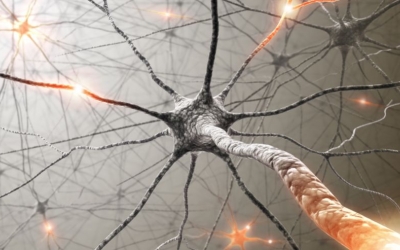- Latest news▼
-
10:23, April 19 JAMA Oncology: Urine test can help rule out high-grade prostate cancer with almost 100% accuracy, study shows

-
18:00, April 18 Daily Mail: Elderly woman in China gets infected with brain-eating amoeba

-
14:19, April 18 Obesity: exercising before breakfast helps you lose weight faster

-
10:42, April 18 The Conversation: childhood trauma can cause pathological hoarding

-
08:37, April 18 Daily Mail: Satiating food reduces cravings for sweets, nutritionist says

-
18:22, April 17 First Armenian-German Conference entitled “Heart Failure Spring School”

-
08:38, April 17 Why do kids usually recover from COVID-19 more easily than adults?

-
14:37, April 16 Daily Mail: intermittent fasting is not suitable for children and women before their periods

-
16:41, April 15 Cell: in carriers of defective BRCA2 gene, sugar consumption increases cancer risk

-
15:04, April 15 305 cases of measles recorded in Armenia so far in 2024

-
14:38, April 15 Food and Environmental Virology: tea contributes to effective coronavirus control

-
12:41, April 15 Daily Mail: vitamin A, B3 and E supplements can be dangerous

-
10:56, April 15 Diabetes Care: evening physical activity is good for the heart

-
08:27, April 15 Women are more susceptible to blood loss and death during bypass surgery than men, researchers say

-
18:42, April 13 WHO: Nigeria pioneers revolutionary meningitis vaccine

All materials
Progesterone treatment fails to minimize brain trauma, studies find

Two large studies of patients with serious brain injuries found that giving people the hormone progesterone soon after injury didn’t minimize the effects of brain trauma, FoxNews reported.
The results were from a study of 882 patients, called Protect III, headed by doctors at Emory University in Atlanta, and from another study of 1,195 patients, called Synapse, headed by doctors at North Shore University Hospital in Manhasset, N.Y. Both reports were published in Wednesday’s issue of the New England Journal of Medicine.
The findings were a disappointment, especially since a range of studies in animals had seemed to show that progesterone had a “neuroprotective” effect, preserving brain function despite injury.
Researchers concluded that six months after injury, patients given progesterone didn’t show advantages over patients given a placebo when measuring functional outcomes, such as disability and recovery. These outcomes were measured by means of an assessment known as the Glasgow Coma Scale. The progesterone was administered within four hours of injury from car and motorcycle accidents, falls and other types of accidents.
Follow NEWS.am Medicine on Facebook and Twitter
- Video
- Event calendar
- Archive
- Most read
month
week
day
- WHO: Nigeria pioneers revolutionary meningitis vaccine 1173
- One-third of women experience menstruation-related migraines, most often during premenopause - study 1139
- Women are more susceptible to blood loss and death during bypass surgery than men, researchers say 955
- Food and Environmental Virology: tea contributes to effective coronavirus control 951
- Daily Mail: vitamin A, B3 and E supplements can be dangerous 950
- Cell: in carriers of defective BRCA2 gene, sugar consumption increases cancer risk 922
- 305 cases of measles recorded in Armenia so far in 2024 914
- Diabetes Care: evening physical activity is good for the heart 904
- Daily Mail: intermittent fasting is not suitable for children and women before their periods 730
- First Armenian-German Conference entitled “Heart Failure Spring School” 519
- Why do kids usually recover from COVID-19 more easily than adults? 392
- Obesity: exercising before breakfast helps you lose weight faster 380
- The Conversation: childhood trauma can cause pathological hoarding 375
- Daily Mail: Satiating food reduces cravings for sweets, nutritionist says 348
- Daily Mail: Elderly woman in China gets infected with brain-eating amoeba 347
- Find us on Facebook
- Poll





